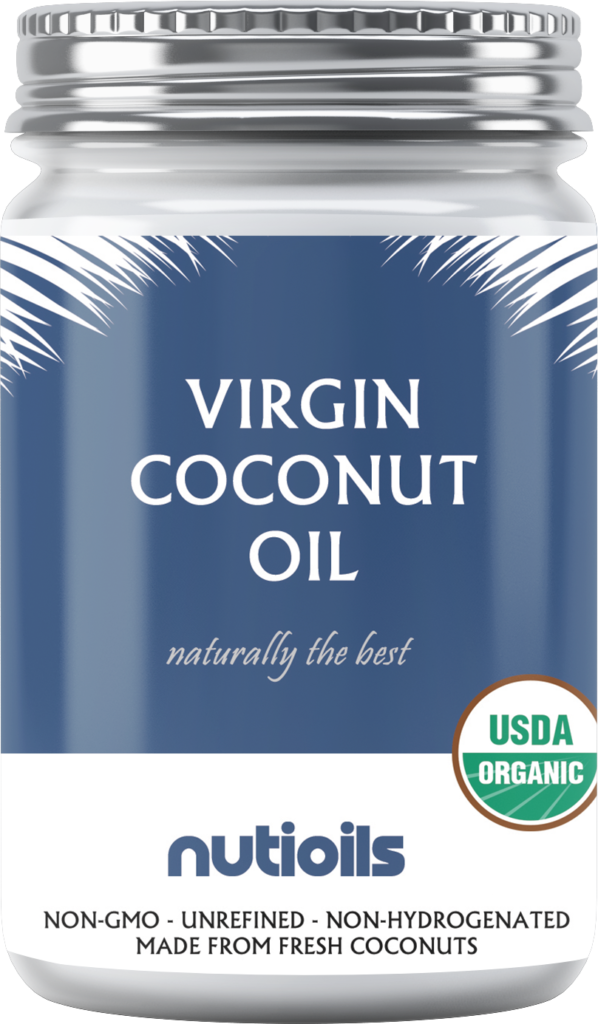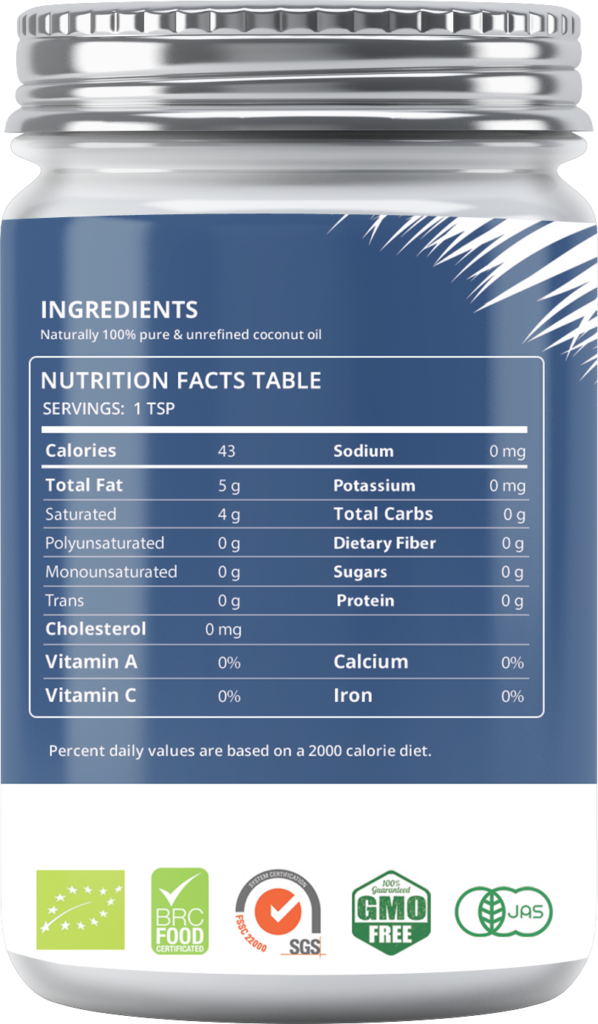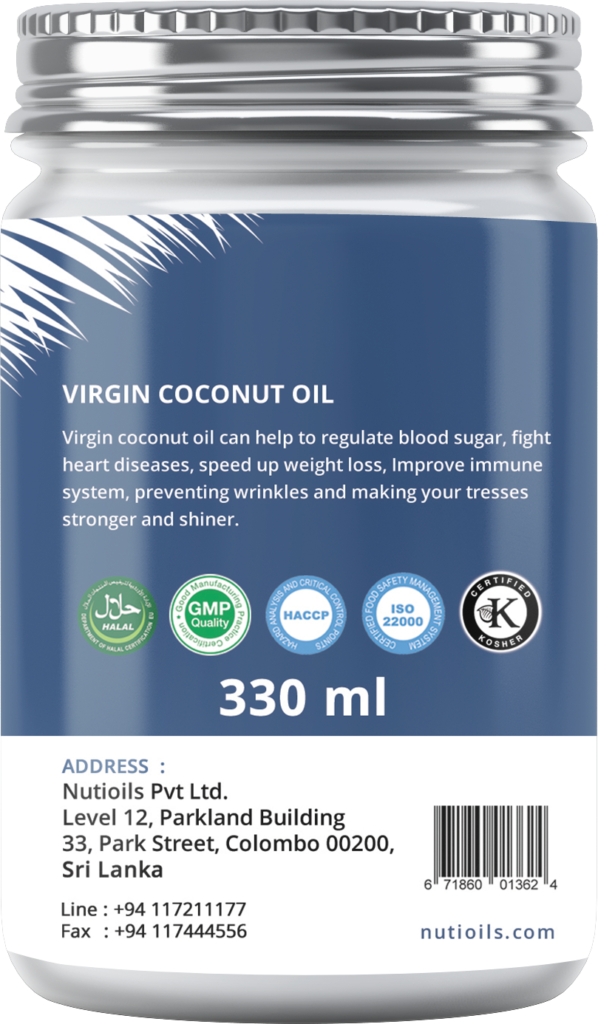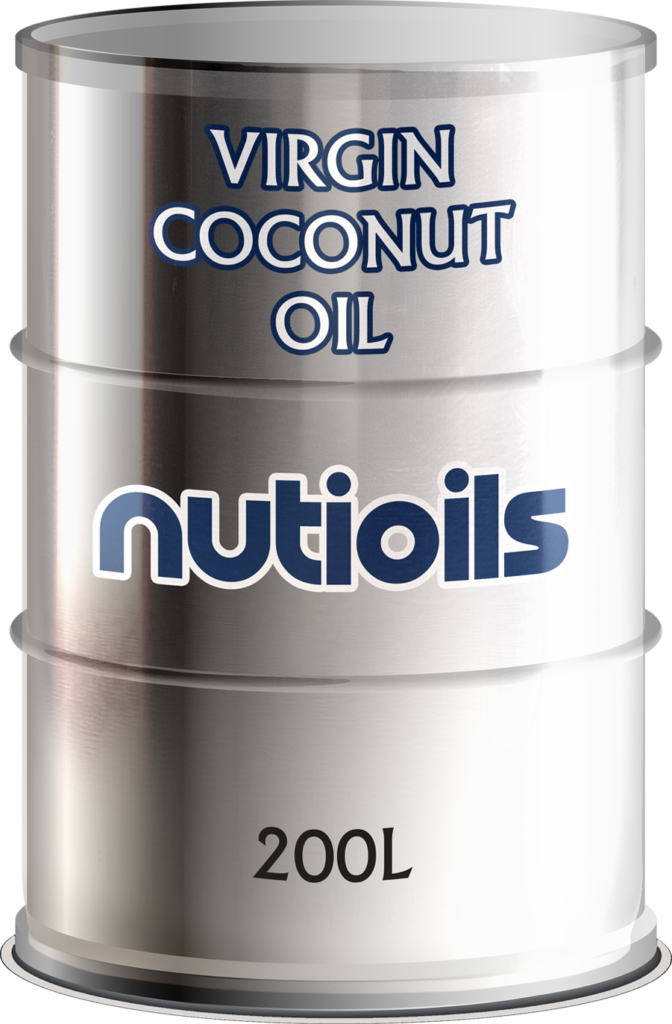



Virgin coconut oil is the oil extracted from coconuts without the application of heat. It is rapidly gaining popularity throughout the world in comparison to ordinary coconut oil. There is, in fact, a substance called virgin coconut oil and it differs from regular coconut oil in significant ways.
These differences mainly lie with the source (more specifically, the physical form of the source), the method of extraction, and its subsequent benefits. The main difference between regular and virgin coconut oil lies in the processes of their extraction. While the former is extracted by cold compression or cold milling of Copra with a moisture content of around 6%, the latter is extracted from coconut milk obtained from fresh coconuts
+94766049617
Nutritional Composition
SERVINGS : 1TSP
| Calories | 43 |
| Sodium | 0 mg |
| Total Fat | 5 g |
| Potassium | 0 mg |
| Saturated | 4 mg |
| Total Carb | 0 g |
| Polyunsaturated | 0 g |
| Dietary Fiber | 0 g |
| Monounsaturated | 0 g |
| Sugars | 0 g |
| Trans | 0 g |
| Protein | 0 g |
| Cholesterol | 0 g |
| Vitamin A | 0% |
| Vitamin c | 0% |
| Calcium | 0% |
| Iron | 0% |
Virgin Coconut Oil
Product obtained from the fresh, mature kernel without testa of the coconut by mechanical processes, with or without the use of heat not exceeding 600C, without undergoing chemical refining, bleaching or deodorizing and which does not lead to the alteration of the nature of the oil. Virgin coconut oil is oil which is suitable for consumption without further processing
Whole Kernel Virgin Coconut Oil
Product obtained from the fresh, mature kernel of the coconut by mechanical process, with or without the use of heat not exceeding 600C, without undergoing chemical refining, bleaching or deodorizing and which does not lead to the alteration of the nature of the oil
White Coconut Oil
Edible grade coconut oil expelled from the mature and dried kernel (copra) which may have been purified by physical processes such as washing, settling, filtration, refrigeration and centrifugation only.
Processing of Virgin Coconut Oil
There are several techniques used to extract the oil:
Coconut Milk may be extracted from Coconuts, followed by the addition of enzyme or aging for several hours. This method is usually employed in village industries and yields a rich product. However, it is difficult to maintain consistency, quality and hygiene.
With our products the Coconut is grated and then dried at a low temperature, no higher than 60°C, and then cold pressed to extract the oil. We also offer a premium product where the Coconut Milk is separated into fiber and oil using a centrifuge.
To safeguard the quality of virgin coconut oil, it is important that the moisture level is kept at the minimum. Whereas Coconut Oil is generally there are about 10% “unsaturated” fatty acids which are susceptible to peroxidation that bring about rancidity. Apart from making the product unpalatable, rancidity produces adverse reactions such as stomach ache and skin irritations when used externally.
What makes Coconut Oil so special is that the majority of the oil (90%) is small and medium chain triglycerides (MCTs) as opposed to other saturated fats like animal fats, which are long-chain triglycerides (LCTs). When you consume the oil the MCT is readily burned in the body and dissipated as energy unlike LCT, which goes to the circulatory system before it is finally being used as energy. When the LCT goes into the circulatory system it leaves fatty deposits in the tissue.
General Requirements of Virgin Coconut Oil
- Virgin coconut oil be free from adulterants, visible sediments, suspended and other foreign matter, separated water, added colouring and flavouring substances and chemicals.
- It should be free from foreign and rancid odour and taste
Other Requirements of Virgin Coconut Oil
| Characteristics | Virgin coconut oil |
|---|---|
| Relative Density at 30 0C | 0.915-0.920 |
| Refractive index at 40 0C | 1.4480-1.4492 |
| Iodine value | 4.1-6.0 |
| Saponification value | 255-265 |
| Unsaponification matter,Percent by mass,max | 0.2 |
| Colour 25mm cell on the Lovibond colour scale expressed in | 1 |
| Y+5R, not deeper than moisture at 105°C max | 0.2 |
| Insoluble impurities percent by mass,max | 0.05 |
| Free fatty acids, calculated as lauric acid % by mass,max | 0.2 |
| Mineral acidity | Nil |
| Mineral acidity | 3.0 |
Microbiological Limits
| Test Organism | Limit |
|---|---|
| Yeasts and moulds, cfu, per g, max. | 10.0 |
Aflatoxins
The product shall not exceed the level 5.0 μg/ kg for aflatoxin B1 and 10.0 μg/ kg for total aflatoxin.
Polycyclic Aromatic Hydrocarbon (PAH)
The product shall not exceed the level 2.0 μg/ kg for Benzo(a)pyrene and 20.0 μg/ kg for the total PAH.
Heavy Metals
The product shall not exceed the limits given below
| Heavy metal | Limit |
|---|---|
| Arsenic, as As, mg/ kg, max. | 0.1 |
| Lead, as Pb, mg/ kg, max. | 0.1 |
| Cadmium, as Cd, mg/ kg, max | 0.1 |
Standards of Coconut oil, Whole Kernel Virgin coconut oil, White coconut oil, Refined & Bleached coconut oil & RBD oil
| Characteristics | Coconut oil | Whole kernel virgin coconut oil | White coconut oil | Refined and bleached coconut oil | Refined, bleached and deodorized coconut oil |
|---|---|---|---|---|---|
| Relative Density at 300C | 0.915 -0.920 | 0.915- 0.920 | 0.915- 0.920 | 0.915- 0.920 | 0.915 - 0.920 |
| Refractive index at 400C | 1.4480-1.4492 | 1.4480-1.4492 | 1.4480- 1.4492 | 1.4480- 1.4492 | 1.4480 - 1.4492 |
| Iodine value | 7.5 -11.0 | 4.1 - 7.5 | 7.5- 11.0 | 7.5-11.0 | 7.5 - 11.0 |
| Saponification value | 248 - 265 | 255 - 265 | 248 - 265 | 248 - 265 | 248 - 265 |
| Unsaponification matter,Percent by mass,max | 0.8 | 0.2 | 0.8 | 0.8 | 0.5 |
| Colour 25mm cell on the Lovibond colour scale expressed in Y+5R, not deeper than | 5 | 2 | 4 | 2 | 2 |
| moisture at 1050C max | 0.4 | 0.2 | 0.4 | 0.1 | 0.1 |
| Insoluble impurities percent by mass,max | 0.005 | 0.005 | 0.005 | 0.005 | 0.005 |
| Free fatty acids, calculated as lauric acid % by mass,max | 0.8 | 0.2 | 0.8 | 0.1 | 0.1 |
| Mineral acidity | Nil | Nil | Nil | Nil | Nil |
| Peroxide value meq/kg, max | 3.0 | 3.0 | 3.0 | 3.0 | 3.0 |
+94766049617
